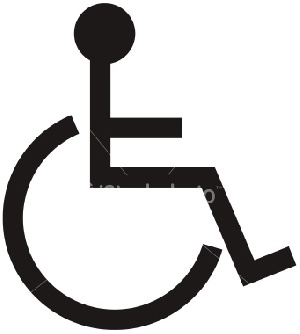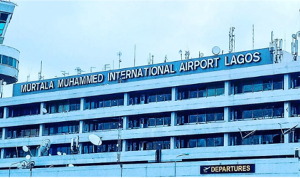The Ghana Federation of the Disabled and other stakeholders have expressed worry over government's failure to review the Disability Act in line with international standards and ensure full realization of the rights of persons with disability.
Professor Nii-Adziri Wellington, professor of Architecture and Heritage had raised concerns over gaps in Ghana's disability act and urged government to revise it immediately to conform to international standards.
Speaking at an inaugural lecture, organised by the Ghana Academy of Arts and Sciences, he explained that Persons With Disability (PWD) faced a lot of barriers in the society and called for a comprehensive review of the law to fully protect the PWDs and address their social and economic needs.
Mr Isaac Tuggun, a Focal Person of the Federation told the Ghana News Agency on Wednesday that PWDs faced severe social stigma, creating a culture of entrenched discrimination. “…Ostracized from society, many live under the misguided belief that their lives are not worthy of respect, this should not be the case in a country that passed a law in 2006 designed to address this inequality,” he said.
The Federation cataloged a number of issues it classified as gaps in the Act and raised fear about government’s inability to enforce the law, which would further worsen the plight of PWDs who are already disadvantaged in the areas of education, healthcare, transport and others.
According to the Federation, the definition of PWD in Act 715 used the word “means” to set out its scope but the general effect of “means” in a definition is to narrow or delimit the scope of the concept defined.
The GFD said the use of “means” in the Act is in sharp contrast with the definition under the UN Convention on Rights of Persons with Disability (UNCRPD) which uses “include” rather than “means” to set out the scope of the concept.
It also said the word “discrimination” which is a key concept under the particular legislation is lacking whereas it is included in the UNCRPD. “Act 715 lacks any provision guaranteeing the equality of a person with disability with other people. Unlike the UNCRPD, it does not provide for measures that may be applied by the government to promote equality and non-discrimination of PWDs,” he added.
The PWDs who fall within another minority or vulnerable group and suffer discrimination are women and children with disability, but Act 715 failed to deal with this type of discrimination, said Mrs Rita Kyeremaa Kusi, the Executive Director of GFD.
“It pays almost no attention to women and children with disability,” she added.
She said an inherent right to life, equal to that of others is contained in Article 10 of the UNCRPD but not in Ghana’s Act 715.
She said: “Article 11 of the UNCRPD requires States Parties to protect and ensure the safety of PWDs in times of situational risk and humanitarian emergencies.
“In times of emergency where evacuation is required for instance, priority is often given to women and children, leaving out PWDs”.
According to the GFD right to equal recognition, under the law as guaranteed under Article 12 of the UNCRPD, was not contained in the Act.
Act 715 currently provides for access of PWDs to judicial proceedings but only as participants and accused persons, but effective access to justice which guarantees protection of the law and fair treatment of vulnerability was not in the Act.
“Again, right to equal recognition under the law as guaranteed under Article 14 UNCRPD is not contained in Act 715,” said Mrs Kusi.
“Act 715 prohibits abusive or degrading treatment of PWDs unlike the UNCRPD which has a more exhaustive provision under Article 15 that provides freedom form torture and cruel treatment or punishment,” she added.
Also missing in Ghana’s act but contained in the UNCRPD is protection of integrity, right to freedom of movement and nationality, the right to freely express oneself and have access to information through means and formats that are easily available to PWDs.
Respect for privacy is not also captured in the Ghanaian act while the Act 715 fails to promote the right of PWDs to participate in political and public life in contrast to Article 29 of the UNCRPD.
The Federation is therefore urging government to, as a matter of urgency, honour its promise of revising the country's Disability Act to ensure it is compatible with the United Nations Convention on the Rights of Persons with Disabilities.
General News of Thursday, 7 May 2015
Source: GNA













